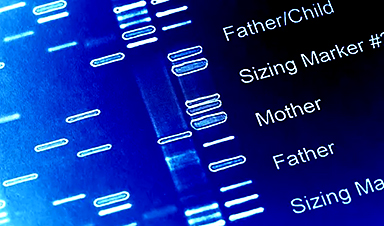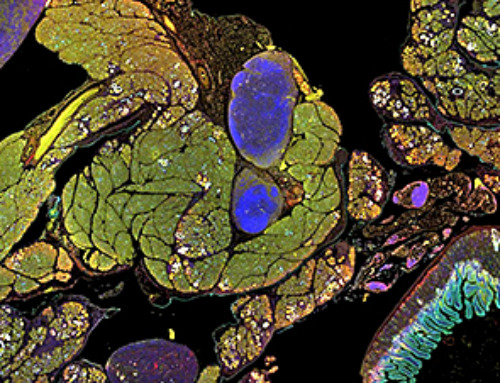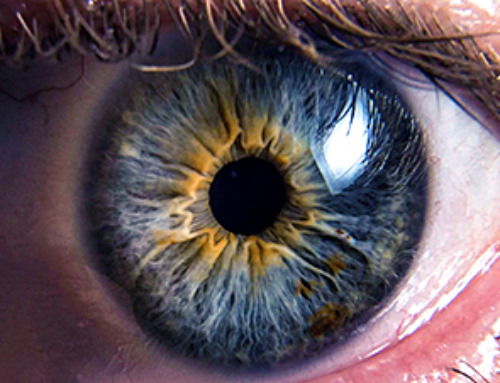Whether or not a person becomes seriously ill with COVID-19 depends, among other things, on genetic factors. With this in mind, researchers from the University Hospital Bonn (UKB) and the University of Bonn, in cooperation with other research teams from Germany, the Netherlands, Spain and Italy, investigated a particularly large group of affected individuals. They confirmed the central and already known role of the TLR7 gene in severe courses of the disease in men, but were also able to find evidence for a contribution of the gene in women. In addition, they were able to show that genetic changes in three other genes of the innate immune system contribute to severe COVID-19. The results have now been published in the journal “Human Genetics and Genomics Advances”.
Even though the number of severe cases following infection with the SARS-CoV-2 virus has decreased, there is still great interest in understanding why, at the height of the coronavirus pandemic, the infection was severe in some people but not in others.
This is important because it gives us information about the function and reaction of the immune system when it first comes into contact with a pathogen. If we have a better understanding of how severe courses of the disease develop, we can identify people at risk and protect them better or develop targeted therapies. We assume that the findings can be transferred at least in part to future pandemics.”
Kerstin Ludwig, Professor, Institute of Human Genetics, University Hospital Bonn
Kerstin Ludwig is also a member of the Cluster of Excellence ImmunoSenstation2 and the Transdisciplinary Research Area (TRA) “Life and Health” at the University of Bonn.
In addition to many possible reasons such as increased age or pre-existing conditions, some people’s own genetic make-up can cause a severe course of the disease. Early work in the pandemic had already identified affected genes, most of which are involved in the innate immune response. The gene with the strongest evidence to date is the TLR7 gene, which was identified as the cause of the disease in two pairs of Dutch brothers with severe cases back in summer 2020. However, it was not yet known to what extent the effect of genetic changes in TLR7 is independent of other non-genetic risk factors, such as increased age or previous illnesses, and whether there are other genes in which so-called mutations significantly increase the risk of severe COVID.
Increased risk of severe Covid-19 lies in three other genes in addition to TLR7
In the recently published study, an international research group led by Prof. Ludwig looked at the gene sequences of 52 candidate genes, including TLR7, in a comparatively large patient sample. Through collaborations with various European groups, the Bonn researchers gained access to DNA material from 1,772 people with severe COVID-19 and 5,347 control individuals with unknown SARS-CoV-2 status from Spain and Italy – i.e. from regions where a very high incidence and high mortality rate was observed, especially at the beginning of the pandemic. All those affected were infected at a time when vaccinations were not yet available – these people therefore had no immune protection and were exposed to the virus virtually “unprepared”.
In this large group of people, mutations that render the TLR7 gene non-functional were actually observed significantly more frequently in severely affected COVID-19 patients than in the control group. “This ‘enrichment’ was even stronger when only those affected people were considered who, due to their age and state of health, would not actually have had a high risk of a severe course. This means that certain mutations in this gene significantly increase the risk of severe progression,” says first author and doctoral student at the Bonn Institute of Human Genetics Jannik Boos, who was in charge of the project. In addition to TLR7, the Bonn researchers were also able to identify mutations in the three other genes TBK1, INFAR1 and IFIH1 in the group of severely affected individuals.
Gender-specific differences in COVID-19 progression due to hereditary factors?
The Bonn researchers then took a closer look at TLR7 and found something interesting: the TLR7 gene is located on the X chromosome, of which men only have one copy, but women have two. “So if there is a loss of function of TLR7 on one copy, men no longer have a functioning gene – women, on the other hand, still have a healthy copy, so at least a little bit of functioning TLR7. It was therefore surprising for us that we also found TLR7 mutations more frequently in women with severe COVID-19 courses,” says Dr. Axel Schmidt, who is a resident at the Institute of Human Genetics and in the Department of Neuropaediatrics at the UKB and led the study with Prof. Ludwig. Together with Prof. Alexander Hoischen’s team from Radboudumc University Hospital in the Netherlands, the Bonn researchers found initial indications that the type of genetic changes is different in women: while in men the mutations lead to the absence of TLR7, in women the “broken” TLR7 versions appear to interact with the “healthy” copies and thus also influence their function. “We assume that TLR7 can also be impaired in women with severe COVID, but presumably via a different biological mechanism,” says Ludwig, who is now working with groups from the Immunosensation2 cluster to clarify whether this hypothesis is correct and, if so, what the effects of this mechanism are on the immune system.
Boos, J., et al. (2024). Stratified analyses refine association between TLR7 rare variants and severe COVID-19. Human Genetics and Genomics Advances. doi.org/10.1016/j.xhgg.2024.100323.
News
Studies detail high rates of long COVID among healthcare, dental workers
Researchers have estimated approximately 8% of Americas have ever experienced long COVID, or lasting symptoms, following an acute COVID-19 infection. Now two recent international studies suggest that the percentage is much higher among healthcare workers [...]
Melting Arctic Ice May Unleash Ancient Deadly Diseases, Scientists Warn
Melting Arctic ice increases human and animal interactions, raising the risk of infectious disease spread. Researchers urge early intervention and surveillance. Climate change is opening new pathways for the spread of infectious diseases such [...]
Scientists May Have Found a Secret Weapon To Stop Pancreatic Cancer Before It Starts
Researchers at Cold Spring Harbor Laboratory have found that blocking the FGFR2 and EGFR genes can stop early-stage pancreatic cancer from progressing, offering a promising path toward prevention. Pancreatic cancer is expected to become [...]
Breakthrough Drug Restores Vision: Researchers Successfully Reverse Retinal Damage
Blocking the PROX1 protein allowed KAIST researchers to regenerate damaged retinas and restore vision in mice. Vision is one of the most important human senses, yet more than 300 million people around the world are at [...]
Differentiating cancerous and healthy cells through motion analysis
Researchers from Tokyo Metropolitan University have found that the motion of unlabeled cells can be used to tell whether they are cancerous or healthy. They observed malignant fibrosarcoma [...]
This Tiny Cellular Gate Could Be the Key to Curing Cancer – And Regrowing Hair
After more than five decades of mystery, scientists have finally unveiled the detailed structure and function of a long-theorized molecular machine in our mitochondria — the mitochondrial pyruvate carrier. This microscopic gatekeeper controls how [...]
Unlocking Vision’s Secrets: Researchers Reveal 3D Structure of Key Eye Protein
Researchers have uncovered the 3D structure of RBP3, a key protein in vision, revealing how it transports retinoids and fatty acids and how its dysfunction may lead to retinal diseases. Proteins play a critical [...]
5 Key Facts About Nanoplastics and How They Affect the Human Body
Nanoplastics are typically defined as plastic particles smaller than 1000 nanometers. These particles are increasingly being detected in human tissues: they can bypass biological barriers, accumulate in organs, and may influence health in ways [...]
Measles Is Back: Doctors Warn of Dangerous Surge Across the U.S.
Parents are encouraged to contact their pediatrician if their child has been exposed to measles or is showing symptoms. Pediatric infectious disease experts are emphasizing the critical importance of measles vaccination, as the highly [...]
AI at the Speed of Light: How Silicon Photonics Are Reinventing Hardware
A cutting-edge AI acceleration platform powered by light rather than electricity could revolutionize how AI is trained and deployed. Using photonic integrated circuits made from advanced III-V semiconductors, researchers have developed a system that vastly [...]
A Grain of Brain, 523 Million Synapses, Most Complicated Neuroscience Experiment Ever Attempted
A team of over 150 scientists has achieved what once seemed impossible: a complete wiring and activity map of a tiny section of a mammalian brain. This feat, part of the MICrONS Project, rivals [...]
The Secret “Radar” Bacteria Use To Outsmart Their Enemies
A chemical radar allows bacteria to sense and eliminate predators. Investigating how microorganisms communicate deepens our understanding of the complex ecological interactions that shape our environment is an area of key focus for the [...]
Psychologists explore ethical issues associated with human-AI relationships
It's becoming increasingly commonplace for people to develop intimate, long-term relationships with artificial intelligence (AI) technologies. At their extreme, people have "married" their AI companions in non-legally binding ceremonies, and at least two people [...]
When You Lose Weight, Where Does It Actually Go?
Most health professionals lack a clear understanding of how body fat is lost, often subscribing to misconceptions like fat converting to energy or muscle. The truth is, fat is actually broken down into carbon [...]
How Everyday Plastics Quietly Turn Into DNA-Damaging Nanoparticles
The same unique structure that makes plastic so versatile also makes it susceptible to breaking down into harmful micro- and nanoscale particles. The world is saturated with trillions of microscopic and nanoscopic plastic particles, some smaller [...]
AI Outperforms Physicians in Real-World Urgent Care Decisions, Study Finds
The study, conducted at the virtual urgent care clinic Cedars-Sinai Connect in LA, compared recommendations given in about 500 visits of adult patients with relatively common symptoms – respiratory, urinary, eye, vaginal and dental. [...]





















